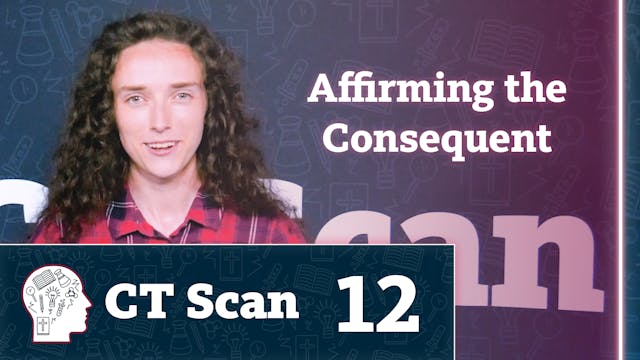Conditional arguments use if-then statements, like If God created humans, then all humans have value. The if is the antecedent, and the then is the consequent. Let's look at 3 valid types of conditional arguments: Affirming the Antecedent, Denying the Consequent, and Hypothetical Syllogism. By recognizing these valid forms, we can better spot related fallacies.
Up Next in S2: Fallacies
-
Affirming the Consequent
Subtle, persuasive, and almost always illogical, Affirming the Consequent is a flawed if-then argument which argues that an if statement is true because a then statement is true. Like If your car is out of gas, it won't start. It won't start; therefore, it's out of gas. Using real evolutionary ex...
-
Denying the Antecedent
Denying the Antecedent is a type of flawed if-then‚ argument which claims that a then‚ statement is false because an if‚ statement is also false. Like If you have a dog, you are a pet owner. You do not have a dog. Therefore, you are not a pet owner.‚ Using real examples from the origins controver...
-
Slippery Slope Fallacies
Is it a fallacy to say that evolutionary beliefs can lead to serious social consequences? Slippery slope arguments, which propose that an action or attitude will lead to some negative outcome, are considered fallacies if the dreaded outcome isn't really likely given the premises. Here are some ti...



